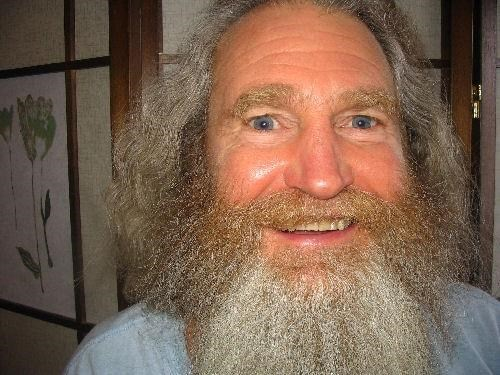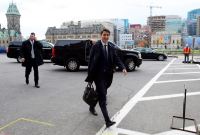Support strong Canadian climate journalism for 2025
A Newfoundland beekeeper who intended to run as a Marijuana Party candidate in this month's federal election had his hopes dashed when he realized too late that he was missing necessary paperwork.
Brendan Quinlan said a series of miscommunications left him scrambling at the last minute, and he missed a Sept. 30 deadline to file the paperwork needed to make his candidacy official with Elections Canada.
"I found out basically everything too late," Quinlan said from his home in Holyrood, N.L.
After speaking with a Marijuana Party organizer to start the process, Quinlan saw his named listed in the newspaper as an interested candidate and thought he had done all the necessary work.
He learned too late that there were more forms to complete and signatures to collect, leaving him and his passionate — but politically green — volunteers with little time to learn the campaigning ropes.
Quinlan said he believes the odds are stacked against inexperienced candidates running for smaller parties with little financial and logistical support.
"If you've got no one to show you the way ... it's quite difficult," Quinlan said.
Blair Longley, the leader and chief agent of the Marijuana Party, said he never spoke to Quinlan personally before the nomination deadline, and instructions on how to set up a campaign slipped through the cracks.
There has been a relatively low follow-through rate for interested candidates since the Marijuana Party's establishment in 2000, Longley said: about 75 per cent of those who express interest don't end up on the ballot.
Longley said his decentralized party runs on a "broken shoestring budget" and prospective candidates are often overwhelmed by the work it takes to get their campaigns off the ground.
The Marijuana Party lost a significant portion of its membership in the early 2000s to larger political parties, including founder Marc-Boris St-Maurice, who left to join the Liberal party. Longley became leader in 2004 when he was the only person willing to step up.
With its membership numbers gutted and cannabis officially legalized last October by the federal Liberal government, the future of the Marijuana Party is hazy. But the party has four candidates in the running this year.
Longley said legalization in its current form does not reflect the long-held vision of the Marijuana Party, arguing, among other things, that new regulations continue to criminalize cannabis users through impaired driving laws.
He also takes issue with the fact that federal government has not apologized for cannabis prohibition, and small cannabis producers and consumers are still not able to get ahead in a system that benefits larger producers.
Longley is realistic about his party's chances. He said he does the minimum necessary to keep the party registered, but it gets harder every time.
Still, he said the Marijuana Party will hang on as long as possible as a small statement of opposition to what he calls "bogus legalization."
"From my point of view, it's better to do something than nothing, even if what you can actually do is next to nothing," he said.
For Quinlan, his campaign's failure to launch has not diminished his passion for policies such as expunging the criminal records of people with cannabis-related convictions and empowering small farmers.
He said he's learned from the experience and plans to run in the next election as a candidate in Newfoundland and Labrador's Avalon riding.
This report by The Canadian Press was first published Oct. 4, 2019.





Comments